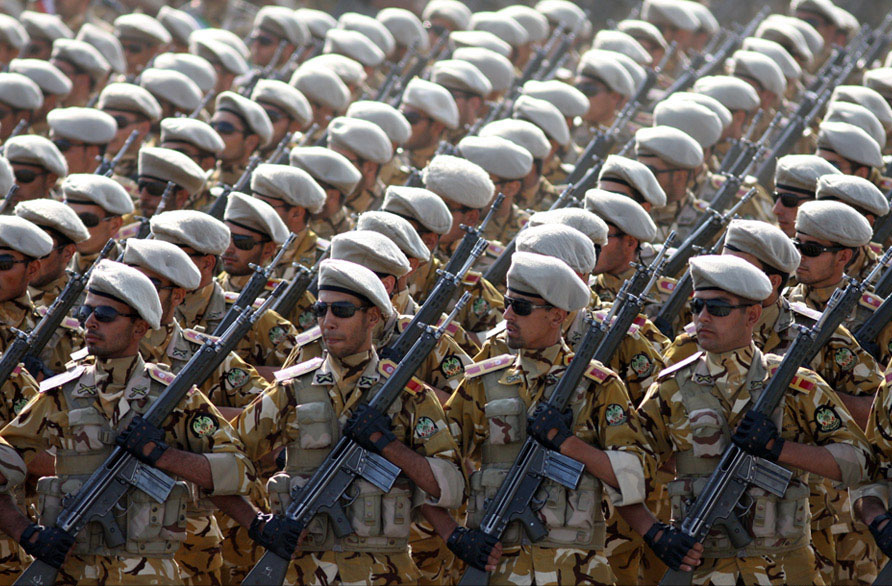THE RISING CRISIS BETWEEN THE UNITED STATES AND IRAN
Amos Yadlin
INSS, Insight No. 1166, May 14, 2019
May 2019 marks the end of a difficult year for Iran, which saw the United States withdrawal from the 2015 nuclear agreement, known as the JCPOA, and the imposition of American sanctions. The sanctions, which have hit primarily the oil and financial sectors, have inflicted severe damage on the Iranian economy. Furthermore, Iran’s attempt to entrench and build up an advanced military capability against Israel in Syria appears to have failed.
After a year in which Iran opted for “strategic patience,” in the hope that European nations would compensate for American sanctions and that President Donald Trump will stand little chance of reelection in 2020, the US administration has succeeded in ramping up the sanctions and applying pressure beyond Tehran’s expectations. Over the last month, Iran has experienced intensification of the US policy of “maximum pressure”: waivers that President Trump had granted China, India, Japan, and other countries, whereby these countries were able to import oil from Iran, were canceled; sanctions were imposed on the export of iron, steel, aluminum, and copper products from Iran; and in the nuclear realm, the United States revoked two waivers that had allowed Iran to abide by its JCPOA obligation to export excess enriched uranium and heavy water that it produces. The American designation of the Revolutionary Guards as a terrorist organization was meant to denigrate the Iranian economy and raise the stakes of doing business with shadowy elements of the Iranian economy, from potential fines to the threat of prison time. The regime in Iran has thus concluded that it must devise a new strategy – or at least, update its strategy – to one that is more proactive, albeit measured and cautious.
Iran now seeks to present a price tag for the US measures against it and has thus embarked on a response comprising action in three realms. Regarding the nuclear realm, Iran is trying to compel European nations to formulate and implement the promised mechanism to provide compensation for the sanctions. In the military realm, Iran seeks to exact a price from the United States (and Israel) with the goal of creating deterrence and preserving national pride. Finally, when it comes to energy supply, Iran has threatened Saudi Arabia and the United Arab Emirates that if it is unable to export oil, they too will be unable to do so.
The Nuclear Realm
Iran has three levels of action at hand in the nuclear realm (in ascending order of risk): a. undermining the JCPOA through minor breaches, inter alia by increasing the scope of uranium enrichment or boosting the level of enrichment; b. leaving the agreement and resuming broad nuclear activity, while installing tens of thousands of centrifuges in Natanz, renewing activity at the Arak reactor, and annulling Iran’s acceptance of the IAEA Additional Protocol; c. withdrawing from the NPT, which would clear the way to the development of a nuclear bomb.
As an initial step, Iran has opted for the limited move of not removing the enriched material above the 300 kg limit imposed by the JCPOA and is threatening a more significant breach in 60 days. Iran has not withdrawn from the agreement, because according to its calculations, overall the JCPOA remains beneficial for Iran’s nuclear and regional aspirations. To Tehran’s surprise, this limited move has not won European or Russian support and has even received some backlash, and thus demonstrates that nuclear escalation by Iran risks causing it to lose the diplomatic and political (as well as limited economic) support it enjoys from these countries in the face of United States policy.
The Military Realm
Likewise, in the military realm, Iran has a range of possible actions at its disposal: attacking American soldiers in Syria or Iraq, and launching low signature attacks via proxies in Syria, Lebanon, and the Gaza Strip against American interests or allies (including Israel). In the 1980s, Iran used Hezbollah to attack the US Marines and the US Embassy in Beirut, killing hundreds. In addition, the Pentagon has determined that Iran was responsible for the death of over 500 US troops in Iraq during the US occupation following the 2003 invasion, via its support and training of anti-American Shiite militias there.
Thus far, an intelligence alert was received regarding an attempt to attack US troops in Iraq, which explained the abrupt change in Secretary of State Mike Pompeo’s travel itinerary last week – from Germany to Iraq. Iran is also presumably preparing actions against Israel from Syria, Iraq, or perhaps even Lebanon. … [To read the full article, click the following LINK – Ed.] |
|

